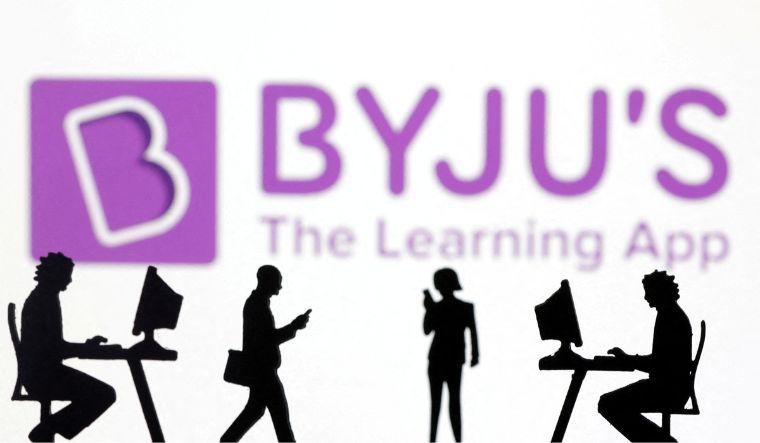Recently, it was widely reported in the media that the troubled ed tech major Byju's founder and CEO Byju Raveendran has urged his sales staff to have a pull-based model rather than a push-based model in order to have a long-lasting relationship with their customers. It has also been reported that Byju's has cut the prices of its courses by around 30 per cent to garner customers.
This is said to be part of its transformation, dubbed "BYJU’S 3.0," which aims to create a more efficient structure by consolidating various divisions. At the moment, co-founder Raveendran is navigating Byju's through financial constraints and limited resources. The company is relying on its offline operations to maintain essential cash flow. However, redefining educator roles remains a substantial barrier to achieving their growth plans.
Experts point out that from a marketing and business perspective, one may say that while Byju's initially disrupted the ed-tech industry with its innovative offerings, its core reason for downfall can be attributed to an unsustainable growth strategy driven by excessive marketing spending, ill-advised acquisitions, overambitious international expansion, and an overreliance on debt financing, among other things.
“If you evaluate it from a branding perspective, I think they branded and sold multiple brand stories at the same time, all leading to a big, fuzzy ball of many lofty firsts, making every move look like one-of-a-kind, daring, ambitious, and revolutionary in nature," remarked Pavan Padaki, Author Brand Vinci and a Brand Doctor.
"Everything was oversold. They did not stop by overselling technology alone, the prodigy of Byju Raveendran, their edu tech model, high-ticket brand ambassadors, advertisement promises etc. everything was oversold, they didn't know what not to brand or sell. The brand had multiple stories contradicting each other: ethics versus education, fair trade versus fair employment, a show of valuation muscles versus profit strength, a splurge of money versus strategic spending, etc,” Padaki added.
He added that to beat the valuation game, every aspect of the business was being marketed. “They even started marketing their internal affairs, recruitment plans, collaborations, takeovers, forthcoming business moves, loans, finance status – name it, anything and everything was marketed and publicized. The brand was out, all dressed as an absolute brash and overambitious kid on the block. The brand was being built with a large deck of playing cards, and it didn't matter which card would shake first; all cards were bound to fall eventually,” he said.
This expert feels that going forward, the brand needs to re-evaluate and reposition itself in the context of today's edu tech business category. “Byju's is now a 2020 brand with particular relevance to the Covid era. Today, with the advent of generative AI, education is on the brink of rediscovering itself, and Byju's should address this change as a progressive brand. Merely strategizing on the fallen cards is going to be hard work and a struggle to undo what has happened as a business brand and an employer brand. Byju Raveendran has to think beyond the online Byju's of the 2020s and build a robust edu-tech model addressing the AI-Gen rather than merely rehashing the hashed-up business,” pointed out Padaki.
According to various sources, BYJU’S 3.0 is mainly aimed at reducing expenses through the consolidation of its divisions and keeping its workforce around 5,000 employees. Reports say that figure is notably smaller compared to the 50,000 employees reported in 2021. “Amid concerns of further layoffs for those earning Rs 6 lakh per year and above, roles in academics, sales, and customer service are seeing salary offers halved from the previous Rs 8-12 Lakh range. The company continues to hire fresh graduates or individuals with 1-2 years of experience to ensure operational continuity.
Currently, job security decisions are largely influenced by salary figures rather than performance metrics, with higher earners more likely to be terminated. Although its former CEO Arjun Mohan previously led the sales department, the company is shifting toward a more flexible structure,” remarked aerospace expert Girish Linganna who also follows the ed-tech space.
On the other hand, Harish Bijoor, Brand Guru and Founder, Harish Bijoor Consults Inc feel that Byju's re-marketing and restrategy need not be only about marketing but it is a broad arena that concerns Marketing, PR, image building, operations and overall ethos to the market of ed tech and therefore the challenge is much bigger than what it seems.
“The Ed-tech market has gone through trauma and I do believe that one of the key issues has been the issue of a Decacorn with possibly corporate governance norms not been at a peak and the key issue of managing consumers wrongly at the front end, particularly in the sensitive category of education which caters to children and youngsters and of course the parent ecosystem. Corrections need to be undertaken across all these arenas,” Bijoor told THE WEEK.



